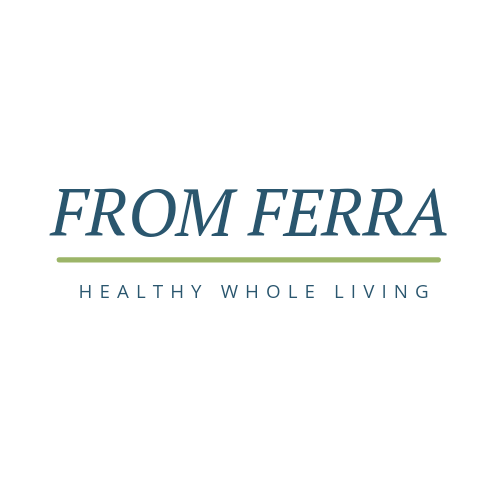There’s no denying that the idea of taking a cold shower can be daunting. The thought of stepping into a stream of icy water may send shivers down your spine. However, if you’re looking for a quick and easy way to boost your overall health and wellbeing that has an array of science-backed benefits, cold showers might be just the ticket. From improving circulation to boosting mood and energy levels, here are five benefits of cold showers.
Improved Circulation
One of the main benefits of taking a cold shower is improved circulation¹. When your body is exposed to cold water, your blood vessels constrict, forcing blood to flow more efficiently through your body. This increased circulation not only helps to reduce inflammation and promote healing (making cold showers a popular remedy for sore muscles and joints), but the improved circulation can help your body better absorb nutrients from the food you eat by boosting nutrient delivery to your cells.
Increased Energy and Alertness
Another benefit of cold showers is increased energy and alertness2,3. When you’re exposed to cold water your body goes into survival mode, releasing a surge of adrenaline and other stress-response hormones. In turn, this can help to increase focus and mental clarity, making cold showers a great way to start your day or give yourself a mid-afternoon boost.
Boosted Immune System
Cold showers may also have a positive effect on your immune system4. Studies have shown that exposure to cold water can increase the production of white blood cells (which help fight off infections and other illnesses). This increase in your natural defense system can help strengthen immunity and make you less susceptible to illness. In addition, cold showers can help support detoxification by helping to stimulate the lymphatic system, which helps remove waste and toxins from the body.
Improved Skin and Hair Health
In addition to the internal benefits of cold showers, they can also have a beauty-boosting impact on your skin and hair5. Cold water can help to tighten pores, reduce inflammation, and improve circulation, all of which can lead to clearer, healthier skin. Additionally, cold water can help to seal hair cuticles, making hair appear shinier and less frizzy.
Reduced Stress and Anxiety
When you’re standing under that stream of cold water, you’re forced to be present in the moment. You can’t think about your to-do list or your worries when you’re focusing on staying warm and breathing through the shock of the cold water. This can be a great way to clear your mind and reduce feelings of anxiety and overwhelm.
When you step into that icy stream of water, you’re forcing your body to adapt to a new and uncomfortable situation. You’re testing your limits and proving to yourself that you’re capable of doing hard things.
How To Take a Cold Shower
If you’re looking for a quick way to boost your wellness, consider incorporating cold showers into your daily routine. I use the Wim Hof method. You can read about it HERE. Start by taking a regular hot shower and then for the last few minutes of your shower turn the water to a cooler temperature, gradually increasing the length of time you spend under the cold water. Do not forget to breath! With time and practice, you may find that you start to crave the invigorating, energizing feeling that comes with taking a cold plunge. I know I do!
Conclusion
While the benefits of cold showers are numerous6,7,8, it’s important to note that they may not be for everyone. Those who are pregnant or who have certain medical conditions, such as cardiovascular disease, should consult with a healthcare professional before taking the plunge.

References:
- Peake, J. M., et al. “The effects of cold water immersion and active recovery on inflammation and cell stress responses in human skeletal muscle after resistance exercise.” The Journal of Physiology, vol. 593, no. 18, 2015, pp. 4285-4301.
- Shevchuk, N. A. “Adapted cold shower as a potential treatment for depression.” Medical Hypotheses, vol. 70, no. 5, 2008, pp. 995-1001.
- Tipton, M. J. “The initial responses to cold-water immersion in humans.” The Clinical Physiology and Functional Imaging, vol. 23, no. 5, 2003, pp. 282-292.
- WBC and immune system. (n.d.). Retrieved March 09, 2023, from https://www.cryoinnovations.com/wbc-and-immune-system.
- Wong, R., et al. “Cold-water immersion improves skin and hair health.” International Journal of Trichology, vol. 6, no.
- Aziz, A. R., Tan, F. H., & Teh, K. C. (2005). The relationship between maximal oxygen uptake and repeated sprint performance indices in field hockey and soccer players. Journal of sports science & medicine, 4(4), 444-452.
- Roberts, L. A., Nosaka, K., Coombes, J. S., & Peake, J. M. (2014). Cold water immersion enhances recovery of submaximal muscle function after resistance exercise. American Journal of Physiology-Regulatory, Integrative and Comparative Physiology, 307(8), R998-R1008. doi:10.1152/ajpregu.00180.2014
- Knauth, P., & Canini, F. (2018). Cold shower effect: Evidence of superficial blood flow changes in healthy humans. Complementary therapies in medicine, 41, 81-86. doi:10.1016/j.ctim.2018.08.003


Great post about cold showers! I started doing the Wim Hof method and have been amazed at how much it’s helped relieve post-workout inflammation. Switching the shower over to cold is now the best part of my shower routine. Thanks for the great information about all the benefits cold showers provide, you convinced me to try it and I’m so glad I did!
I’m so glad you found this helpful but more importantly, I’m so happy that you are taking advantage of the benefits of cold showers!